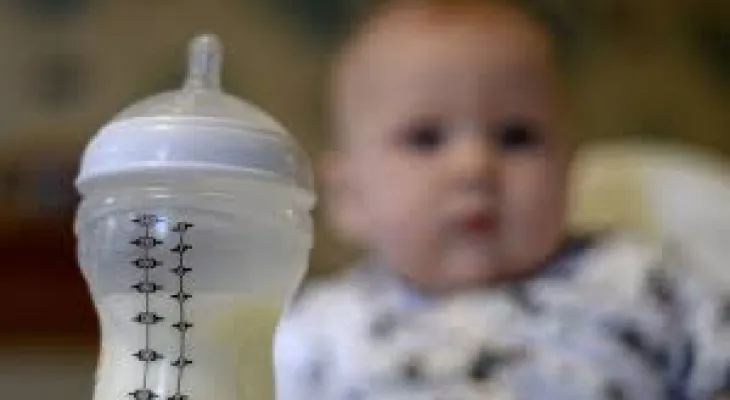
Infant Formula Crisis: Urgent Calls for Action Amid Soaring Costs"
In a stark warning, clinical experts and child welfare campaigners have raised alarm over the escalating crisis of infant hunger, emphasizing that the soaring cost of infant formula is endangering babies' health, particularly those from low-income families. Leading medical organizations, including the Royal College of Midwives and the Royal College of Paediatrics and Child Health, joined children's charities in urging government intervention to address the urgent issue.
A letter addressed to Andrea Leadsom, the children's health minister, emphasizes that the exorbitant prices of infant formula are jeopardizing the well-being of non-breastfed and partially breastfed babies. The plea urges ministers to promptly enhance access to formula for families struggling with affordability, emphasizing the critical need for immediate action.
England's 250 baby banks, designed to provide essential items for infants, have reported a significant surge in demand, especially for formula. With record-high retail prices, parents facing financial constraints resort to skipping feeds, diluting formula to extend its use, resorting to obtaining stolen baby powder, or purchasing expired or partially used tins from internet forums – a practice known as formula foraging.
A survey conducted by the Independent Food Aid Network (Ifan) revealed a concerning trend, with almost half of the organizations supporting more parents in feeding their babies aged 0-12 months compared to the same period last year. Growbaby Swindon, a baby bank resembling a food bank, has witnessed a 200% increase in demand for formula in just one year.
The cost to feed a baby formula for a week is estimated at a minimum of £14.50, further straining financially burdened parents. The Competition and Markets Authority launched an investigation into the infant formula market, noting a 25% price hike by manufacturers in two years. Activists and industry figures alike have decried this as profiteering, with calls for a price cap gaining momentum.
Erin Williams, co-founder of Feed, an infant feeding charity, characterizes the situation as "desperate times" for young families, highlighting the potential risk of undernourishment leading to long-lasting health and developmental issues. The letter to the health minister, coordinated by the First Steps Nutrition trust, is endorsed by 23 clinicians, academic experts, and campaigners, signaling a unified call for urgent measures.
The plea suggests bolstering the cash value of Healthy Start vouchers for pregnant women and mothers with low incomes. The current £8.50 weekly allowance for a baby falls short of covering even the cost of the cheapest formula brand. Campaigners stress that it is crucial to address the root cause of the crisis by tackling poverty through systemic changes, emphasizing the need to avoid normalizing charity as a solution to essential needs.
As the government faces mounting pressure to intervene, the narrative paints a distressing picture of parents grappling with the emotional and financial toll of ensuring their babies receive proper nutrition. The infant formula crisis underscores the broader challenges of the cost of living crisis, urging society to confront the issue head-on and implement sustainable solutions for struggling families.

















